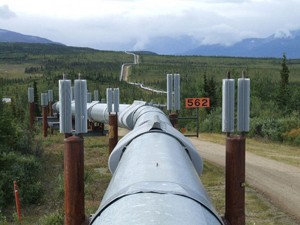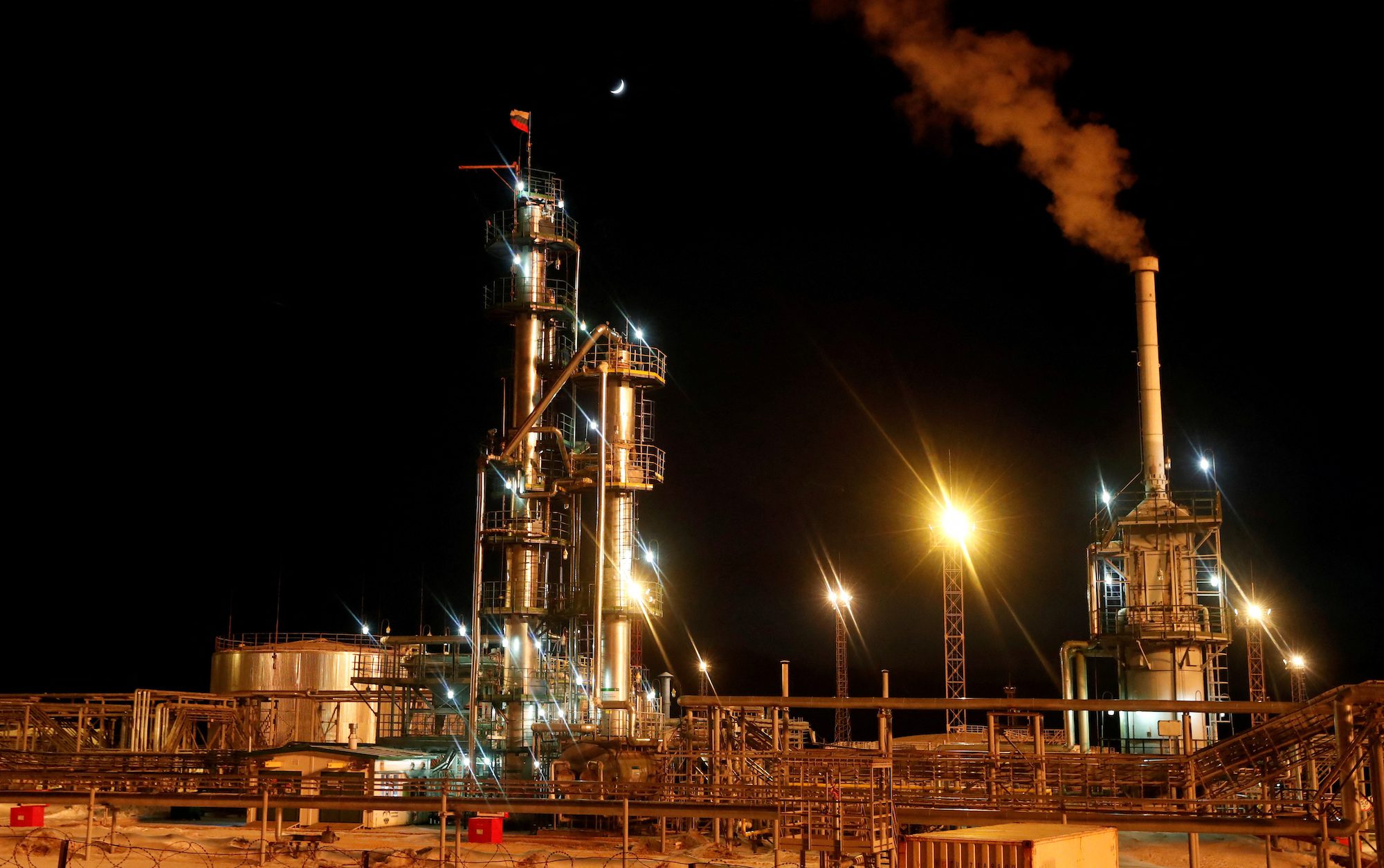 HOUSTON -(Dow Jones)- Plans to reverse the Seaway pipeline may significantly cut the glut of oil inventories in the U.S. interior, but that will only whet the appetite of thirsty Gulf Coast refiners.
HOUSTON -(Dow Jones)- Plans to reverse the Seaway pipeline may significantly cut the glut of oil inventories in the U.S. interior, but that will only whet the appetite of thirsty Gulf Coast refiners.
Experts say more pipelines will be needed along the same route to bring North America’s growing oil bounty to where the continent’s biggest fuel makers are.
“There’s a large demand for oil on the Gulf Coast — one pipeline is not going to do it,” said Bill Day, spokesman for Valero Energy Corp. (VLO), the largest U.S. independent refiner.
Enbridge Inc. (ENB) and Enterprise Products Partners LP (EPD) said Wednesday they will reverse and expand the 669-mile-long Freeport, Texas-to-Cushing, Okla., Seaway line so it can carry up to 400,000 barrels-a-day of crude oil to the Gulf Coast by early 2013. The move would help relieve a bottleneck that has kept growing inventories of crude stuck in storage tanks at Cushing and allow some of that locked up crude to reach the Gulf Coast, home to half of U.S. refining capacity.
But those 400,000 extra daily barrels are a drop in an ocean. Gulf Coast refineries process 7.5 million barrels of oil a day, two-third of which comes from imports, according to the U.S. Energy Information Administration. That’s a huge gap for new production from oil fields in North Dakota, West Texas, Colorado and Alberta to fill, and more pipelines will be needed to move all that production, said Sarah Emerson, principal at energy consultancy ESAI Inc.
U.S. oil production is expected to grow from to 6.4 million barrels a day by 2016 from 4.2 million barrels a day today, according to data provided by Bentek Energy, a consultancy. And oil producers in western Canada are expected to ratchet up production to 3.5 million barrels a day by 2015 from 2.8 million in 2010, according to the Canadian Association of Petroleum Producers.
“I don’t think Seaway is the end of it,” Emerson said.
With fuel demand expected to grow in the short term as the U.S. economy revives and exports to Europe and Latin America rise, there’s room for at least one more major pipeline to bring North American oil to the Gulf Coast, Valero’s Day said.
Which pipelines gets built is now an open question, however. Reversing Seaway killed Enterprise’s plans for an 800,000 barrel-a-day Wrangler pipeline, and it also caused some analysts to question whether it would impede TransCanada Corp.’s (TRP, TRP.T) controversial plans to expand its Keystone pipeline.
The $7-billion expansion, dubbed Keystone XL, would bring up hundreds of thousands of barrels of heavy Canadian crude oil down to Texas and Louisiana. The cross-border project is currently delayed for up to 18 months as it awaits approval from the U.S. State Department, during which time some customers could flock to Seaway, which can move both heavy and light crudes.
But in the long run, as Canadian oil production increases and demand for U.S. fuel at home and abroad grows, Keystone XL should get built, said Carl Kirst, analyst at BMO Capital Markets.
Keystone makes sense because it fulfills a need for heavy crude, which is cheaper than light crude, and therefore more profitable to refine. Refiners along the Gulf Coast and in the Midwest have spent billions to upgrade their equipment to handle this type of crude.
Canadian oil producers have threatened to ship the oil to Asia because of U.S. political uncertainty, but the lack of a major pipeline to the country’s west coast will make the U.S. the customer of choice for the short term, analysts have said.
Meanwhile, Magellan Midstream Partners LP (MMP) still plans to reverse its 700-mile Houston-to-El Paso Longhorn pipeline to deliver up to 225,000 barrels a day of crude oil from west Texas to the Houston by mid-2013, said company spokesman Bruce Heine.
Seaway could also be expanded. Enbridge and Enterprise expect to start gauging interest in the first quarter of 2012 for building a new line of as-of-yet unspecified size to run parallel to the current Seaway, Enterprise spokesman Rick Rainey said.
“Based on level of shipper interest, we could loop the pipeline,” Rainey said, using the industry term for adding a parallel line.
-By Ben Lefebvre, Dow Jones Newswires

 Join The Club
Join The Club











